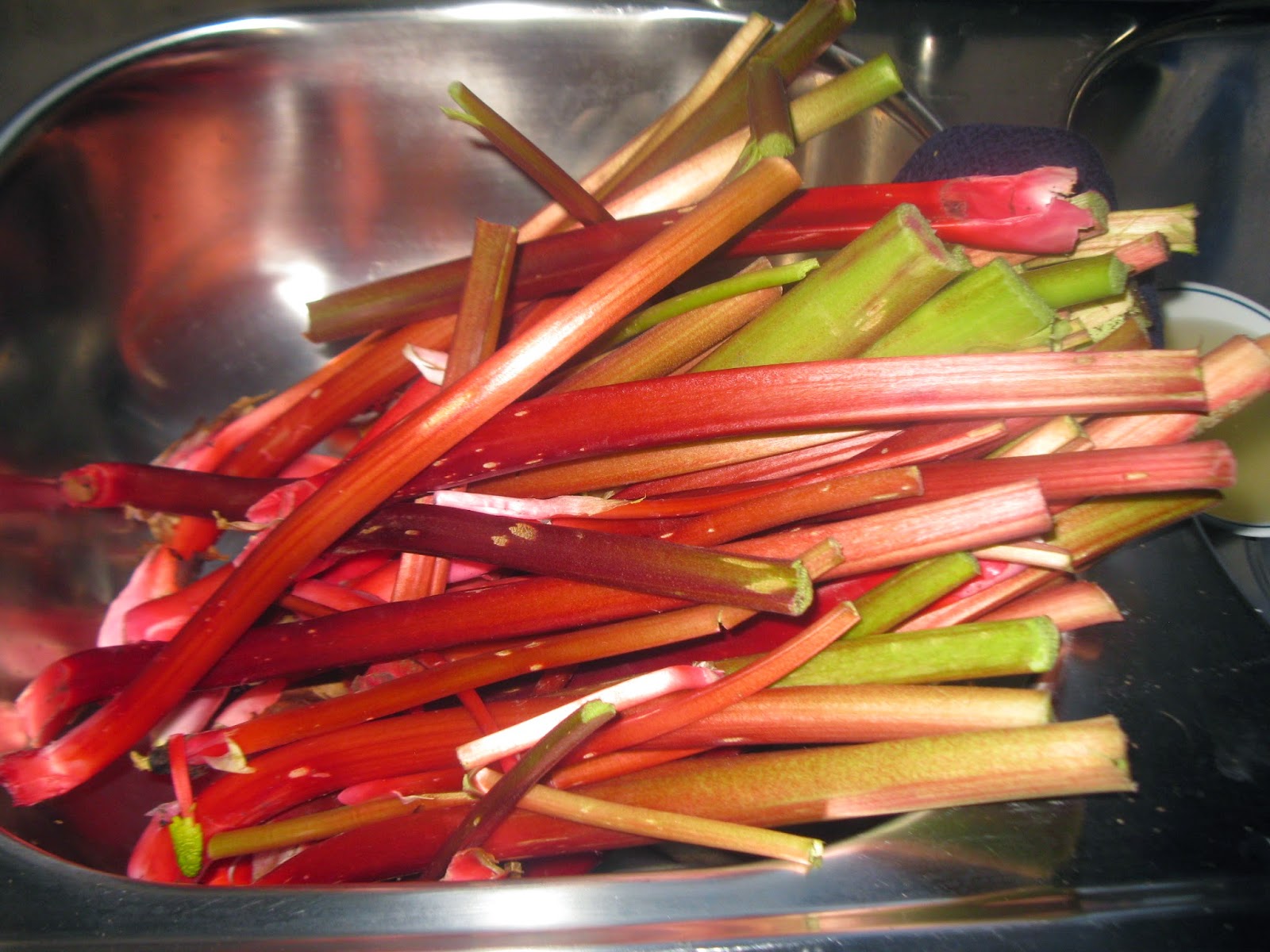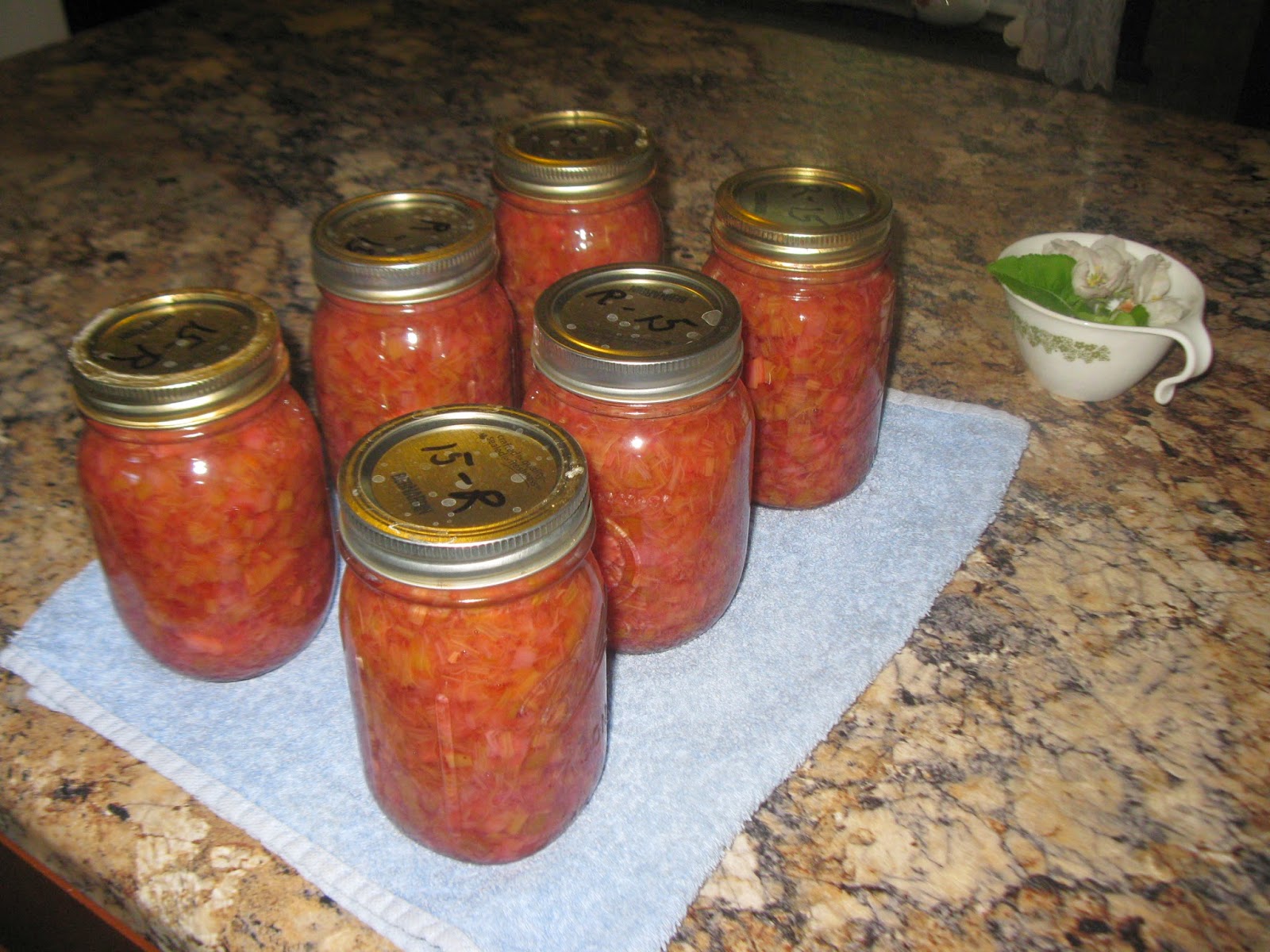| Online: | |
| Visits: | |
| Stories: |

| Story Views | |
| Now: | |
| Last Hour: | |
| Last 24 Hours: | |
| Total: | |
2015 – first canning!
Today I picked the rhubarb. Here is what it looked like in the sink waiting to be washed (by the way, just in case you missed the memo, rhubarb LEAVES are poisonous, being extremely high in oxalic acid. They go into the compost.
I washed it all carefully, sliced it into 1/2 inch or so slices, and it made about a gallon of slices. I put those into a heavy bottomed stainless pot, added 3 cups of sugar, 1/4 cup of water and let it cook over very low heat until it was all tender. Then, I water-bath canned it, processing for 15 minutes. Here is the result!
I really love stewed rhubarb. I eat it like jam or jelly, on buttered toast, pancakes, waffles or yogurt. Yum. Here is a link to the site where I got the following information about rhubarb. It is very good for you!
Health benefits of Rhubarb
- Rhubarb is one of the least calorie vegetables. 100 g fresh petioles provide just 21 calories. Nonetheless, it holds some vital phyto-nutrients such as dietary fiber, poly-phenolic anti-oxidants, minerals, and vitamins. Further, its petioles contain no saturated fats or cholesterol.
- The stalks are rich in several B-complex vitamins such as folates, riboflavin, niacin, vitamin B-6 (pyridoxine), thiamin, and pantothenic acid.
- Red color stalks carry more vitamin-A than in the green varieties. Further, the stalks also contain small amounts of poly-phenolic flavonoid compounds like β-carotene, zea xanthin, and lutein. These compounds convert into vitamin A inside the human body and deliver same protective effects of vitamin A. Vitamin A is a powerful natural anti-oxidant which is required by the body for maintaining integrity of skin and mucus membranes. It is also an essential vitamin for healthy eye-sight. Research studies suggest that natural foods rich in vitamin A help the body protects against lung and oral cavity cancers.
- As in other greens like kale, spinach, etc., rhubarb stalks too provide good amounts of vitamin-K. 100 g of fresh stalks provide 29.3 µg or about 24% of daily recommended intake of this vitamin. Vitamin K has a potential role in bone health by promoting osteotrophic (bone formation and strengthening) activity. Adequate vitamin-K levels in the diet help limiting neuronal damage in the brain; thus, has established role in the treatment of Alzheimer's disease.
- Its stalks also contain healthy levels of minerals like iron, copper, calcium, potassium, and phosphorus. However, most of these minerals do not absorb into the body as they undergo chelate into insoluble complexes by oxalic acid, which then excreted out.
When I was a little girl, my mother would give me a stalk of rhubarb and a little cup of sugar and I would dip the rhubarb in the sugar and take bites. I know sugar is problematic, and yet… I do make this every year that I can, eat it sparingly and feel happy about all the nutrition in there.
Do you eat rhubarb?
Source: http://simplyhomemaking60.blogspot.com/2015/04/2015-first-canning.html





